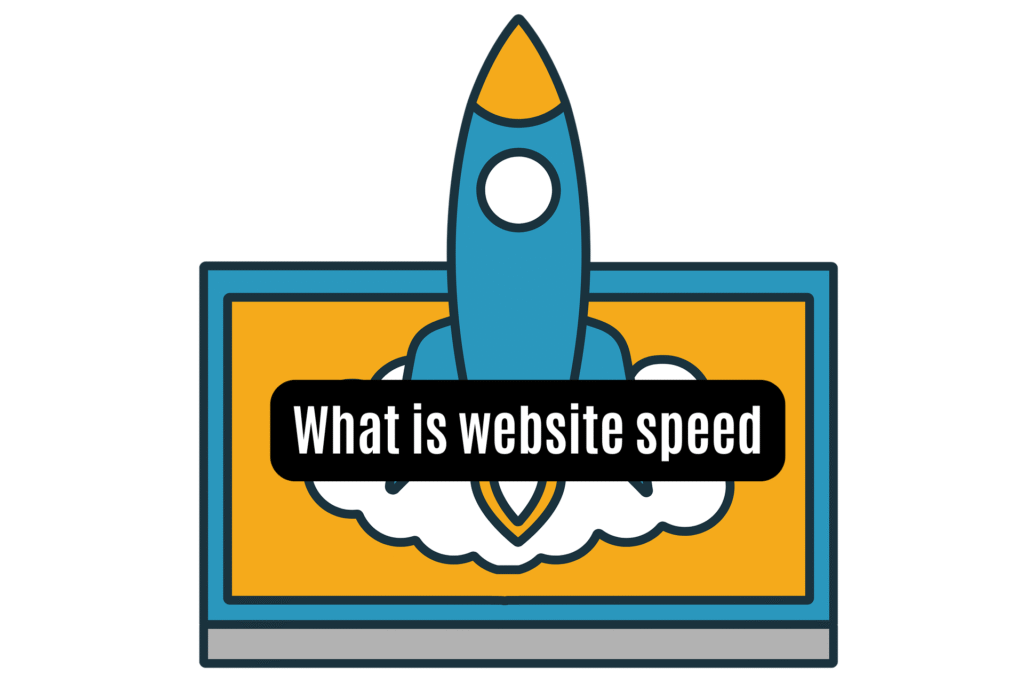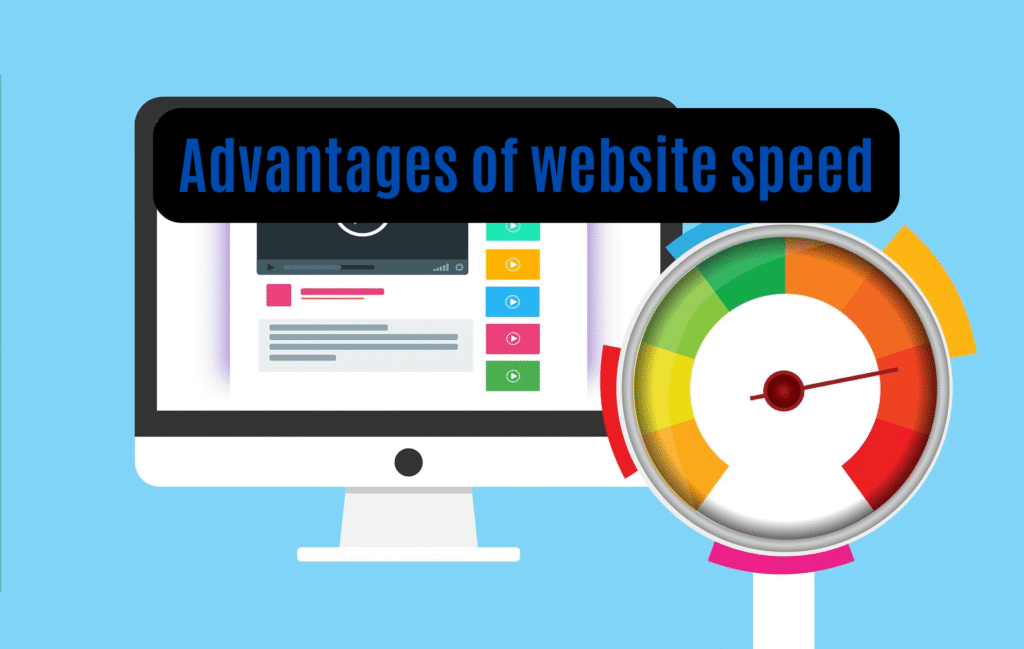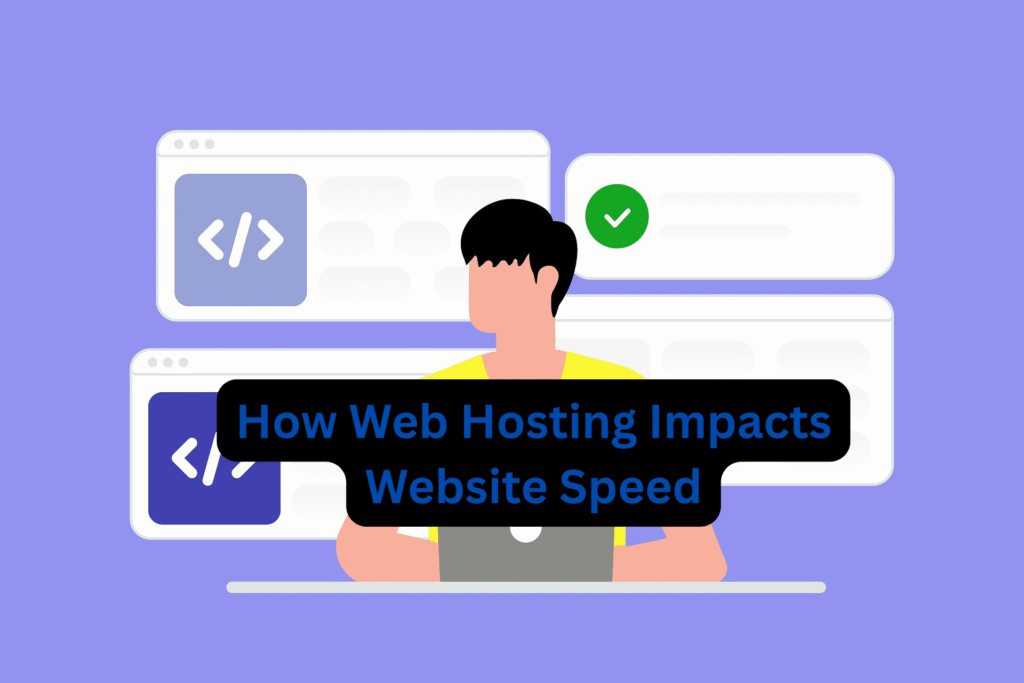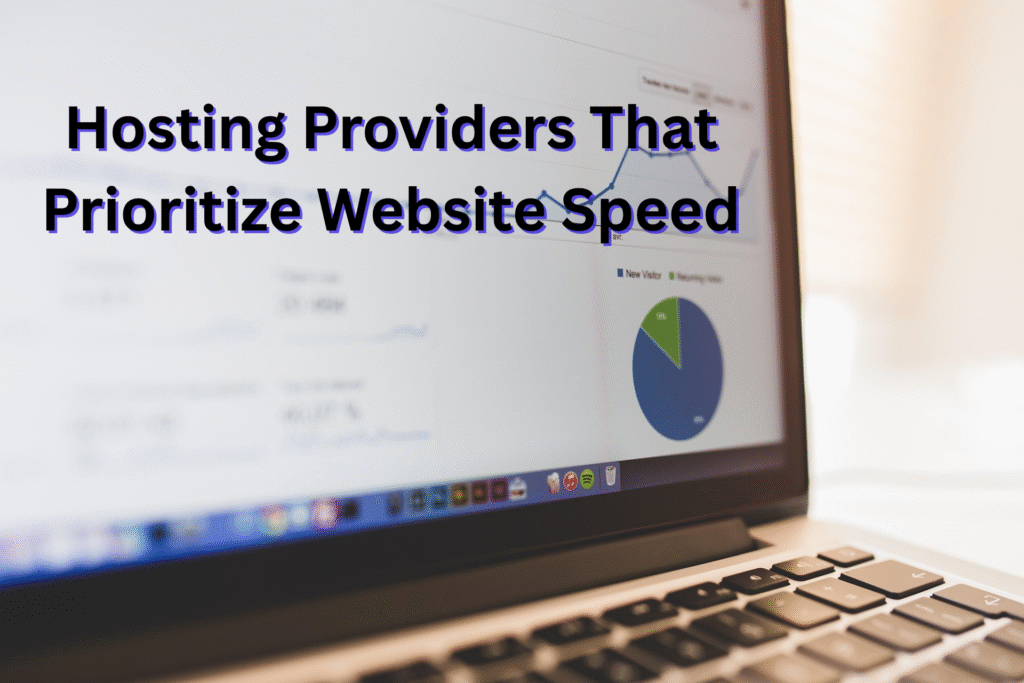Welcome to our blog, the right place for practical, expert-backed tips on hosting reviews, discounts, and boosting your online presence. We encourage you to explore other insightful posts on our site, such as How to Choose the Best Web Hosting for Your Website, The Best Managed WordPress Hosting Providers, The Best SSD Web Hosting Providers, and The Best Budget-Friendly Hosting Providers, especially if you’re serious about building a high-performing website.
In one of our previous articles, “Fastest Web Hosting Providers,“ we discussed how crucial website speed is for user experience, SEO rankings, and overall business success. As we highlighted, slow websites not only frustrate visitors but also drive them away, costing you valuable traffic and conversions.
Today, we’re diving deeper into how to speed up a website with the right web hosting. While design tweaks and plugin optimizations help, your hosting provider plays a foundational role in how fast your website loads. In this article, we’ll show you how to make the right web hosting decisions and give your website the performance it needs in terms of speed.
While many factors affect how fast your site loads — like image size, code, plugins, and caching — one of the most critical (and often overlooked) elements is your web hosting provider. Your hosting can either be the engine that powers your site, like a race car… or the flat tire slowing it down.
If you’ve ever clicked on a website and it took more than a few seconds to load, chances are you clicked away. You’re not alone. In the fast-paced digital world, website speed can make or break your online success, whether you’re a blogger, e-commerce store owner, small business entrepreneur, or beginner.
Also, explore how the right web hosting can dramatically improve your website speed, keep visitors engaged, and even boost your rankings in search engines like Google.
What is website speed?

Website speed refers to how fast the content on your website loads and becomes available for visitors to use when they click a link or type in the address of your website (URL). It’s typically measured by how long it takes for different elements (like images, text, buttons, and videos) to fully display in a browser.
In simpler terms, website speed is how quickly your site shows up and works when someone visits it; every second matters.
Advantages of website speed.

Website speed offers numerous advantages that directly impact your business, user experience, and overall online success.
Think of your website as a physical store. If customers walked in and the doors took forever to open, the lights flickered, or products took minutes to appear, they’d leave out of frustration. Online users behave the same way.
#1. Improve user satisfaction. When a visitor clicks on your link, they expect instant access. A speedy site meets this expectation, making the browsing experience smooth and enjoyable. People are more likely to stay, explore, and return to a site that responds quickly. This not only keeps users happy but also reduces bounce rates, which is the percentage of people who leave your website after viewing just one page.
#2. Website speed directly influences your search engine rankings. Google has publicly confirmed that page speed is a ranking factor. This means that faster websites are more likely to appear higher in search engine results. A better ranking leads to more organic traffic, which is often the most valuable kind because it’s free and usually high-intent. In other words, people searching for solutions are more likely to find your site if it loads quickly.
#3. Website speed enhances conversion rates. Whether you want users to subscribe, make a purchase, or fill out a form, speed plays a role in persuading them to act. A one-second delay in loading time can lead to a significant drop in conversions. On the flip side, even a small speed improvement can lead to more signups, more sales, and more revenue.
#4. Mobile user retention. With the rise of smartphones, most users now access websites on mobile devices. Mobile users are even less patient than desktop users. A slow site on mobile can cause users to abandon your page and never come back. A fast-loading mobile experience ensures you don’t lose out on this massive audience.
#5. Brand credibility and trust. Visitors often judge the professionalism of a business by how smoothly its website runs. If your site loads fast, users subconsciously associate your brand with reliability, efficiency, and modernity. In contrast, a sluggish website creates frustration, and people may assume your business is outdated or untrustworthy
How Web Hosting Impacts Website Speed

Your website lives on a server, and that server is managed by your web hosting provider. Just like a home can’t stand without a solid foundation, your website won’t perform well without quality hosting.
Here’s how hosting affects website speed:
#1. Server Performance and Hardware: Faster, more powerful servers with modern CPUs and SSD storage load data much quicker than outdated, overcrowded servers using HDDs. Choosing a host that uses solid-state drives (SSDs) over traditional hard drives can reduce load times drastically.
#2. Server Location: If your hosting server is physically far from your visitors, it takes longer for the data to travel. Some top hosts use Content Delivery Networks (CDNs) to deliver your site from the nearest server to each visitor, speeding things up.
#3. Shared vs. VPS vs. Dedicated Hosting: Shared hosting means your site shares server space with hundreds of others. It’s cheap, but often slower. While VPS (Virtual Private Server) gives you a portion of the server with more control and faster speeds. And Dedicated hosting means the entire server is yours — fast but expensive.
How to Choose the Right Web Hosting for Website Speed

To speed up your website from the ground up, here’s what to look for in a web hosting provider:
Choosing the right web hosting provider is one of the most important steps you can take to ensure your website loads quickly and runs smoothly. If your hosting is slow, everything else you do to improve performance, like image compression or caching, will only have limited results. That’s why selecting a host that prioritizes speed should be your starting point.
One of the first features to consider is whether the hosting provider uses SSD storage. Solid State Drives are significantly faster than traditional Hard Disk Drives (HDDs). They allow your website’s data to be read and written at much higher speeds, which means faster load times for your visitors. If a host still uses HDDs for its primary storage, that’s a red flag in today’s performance-driven web environment.
Another key factor is whether the host includes built-in caching tools. Server-side caching technologies such as LiteSpeed Cache or NGINX can dramatically improve your site’s performance by storing frequently accessed data and serving it faster. This reduces the need for redundant processing every time a user visits your site. With built-in caching, you don’t always need to rely on third-party plugins to boost speed.
Support for the latest PHP version is also essential. PHP is the scripting language that powers many websites, especially those built on platforms like WordPress. Newer versions of PHP (such as PHP 8 or higher) offer significant speed improvements and better memory usage compared to older versions. A web host that stays updated with the latest technology shows that it’s committed to performance and security.
Location also matters. The physical distance between your server and your visitor affects how long it takes for data to travel. That’s why it’s important to choose a web host that offers global data centers or integrates seamlessly with Content Delivery Networks (CDNs). A CDN ensures your site’s content is served from a location closest to each user, reducing latency and loading times worldwide.
Scalability is another crucial consideration. As your business grows and your website traffic increases, your hosting should be able to grow with you, without causing your website to slow down or crash. The best hosting providers offer flexible plans or scalable infrastructure that can handle traffic spikes smoothly.
Lastly, don’t overlook reliability. A good web host should offer a minimum uptime guarantee of 99.9%. This means your website will be online and accessible almost all the time. Frequent downtime not only frustrates users but can also hurt your search engine rankings and cause lost sales or leads.
When selecting your web hosting provider, it’s about more than just choosing the cheapest plan. It’s about making a long-term investment in speed, performance, and user experience. Would you like help recommending some affordable, beginner-friendly hosting options that meet these speed criteria for your audience?
Top Hosting Providers That Prioritize Website Speed

Here are some tested and trusted fast-speed web hosting companies that deliver great performance and are perfect for bloggers, small businesses, and e-commerce sites:
When it comes to web hosting that prioritizes speed, SiteGround consistently stands out as one of the top choices for beginners and professionals alike. It’s built on Google Cloud infrastructure, which is known for its speed, reliability, and global reach. SiteGround also uses an optimized implementation of PHP and includes built-in caching tools that significantly boost website performance right out of the box.
With a free CDN, daily backups, and exceptional customer support, SiteGround is a perfect match for WordPress users who want hassle-free, blazing-fast hosting from day one.
If you’re looking to launch a WordPress site with performance and support in mind, get started with SiteGround here — it’s designed with beginners in mind but built for serious speed.
Another reliable option is Bluehost, which is officially recommended by WordPress.org. Bluehost offers SSD-powered storage, integrated CDN, and free SSL to help secure and speed up your website. It’s especially ideal for those new to hosting, thanks to its user-friendly dashboard and 24/7 customer support.
Whether you’re starting a blog, small business website, or portfolio, Bluehost makes it easy to get online quickly and stay running smoothly. You can try Bluehost here if you’re looking for an affordable, beginner-friendly hosting solution that doesn’t compromise on performance.
If budget is a concern but you still want excellent speed and modern features, Hostinger is an outstanding choice. It’s one of the most cost-effective hosting providers on the market, but still delivers strong performance, thanks to its LiteSpeed web servers and free CDN integration.
Hostinger also includes one-click installers for popular platforms like WordPress and offers a sleek, intuitive dashboard that makes site management simple, even for complete beginners. For those who want the best value without sacrificing speed, start with Hostinger here and see the difference LiteSpeed technology can make.
For more advanced users who want total control and superior scalability, Cloudways is a powerful option. Cloudways is a managed cloud hosting platform that lets you deploy servers from top providers like DigitalOcean, AWS, and Google Cloud.
It’s designed for developers, agencies, and high-traffic websites that require exceptional speed, flexibility, and scalability. With built-in optimization tools, automated backups, and performance monitoring, Cloudways is ideal for those ready to go beyond traditional shared hosting.
Conclusion: How to Speed Up a Website
The average human attention span has dropped from about 12 seconds in 2000 to just 8 seconds by 2015, shorter than that of a goldfish. This makes website speed more critical than ever. If your site takes too long to load, your visitors won’t wait—they’ll leave.
As we’ve explored in this article, knowing how to speed up a website starts with selecting the right web hosting provider. But don’t stop there, check these informative articles like fastest webhosting providers, How to Choose the Best Web Hosting for Your Website, The Best Managed WordPress Hosting Providers, Best SSD Web Hosting Providers, Best Budget-Friendly Hosting Providers.
Once your site is on a fast and reliable host, you can unlock even greater performance with a few smart tweaks: install a caching plugin like WP Rocket or W3 Total Cache, compress your images using tools such as TinyPNG or ShortPixel, and use a lightweight theme that won’t bog down your site. Be selective with plugins, enable lazy loading, and consider integrating a CDN to boost speed across global locations.
Whether you’re blogging, selling online, or showcasing your brand, remember this: website speed isn’t just a technical metric—it’s a business advantage. check out webhostinsider.com for more webhosting reviews.

